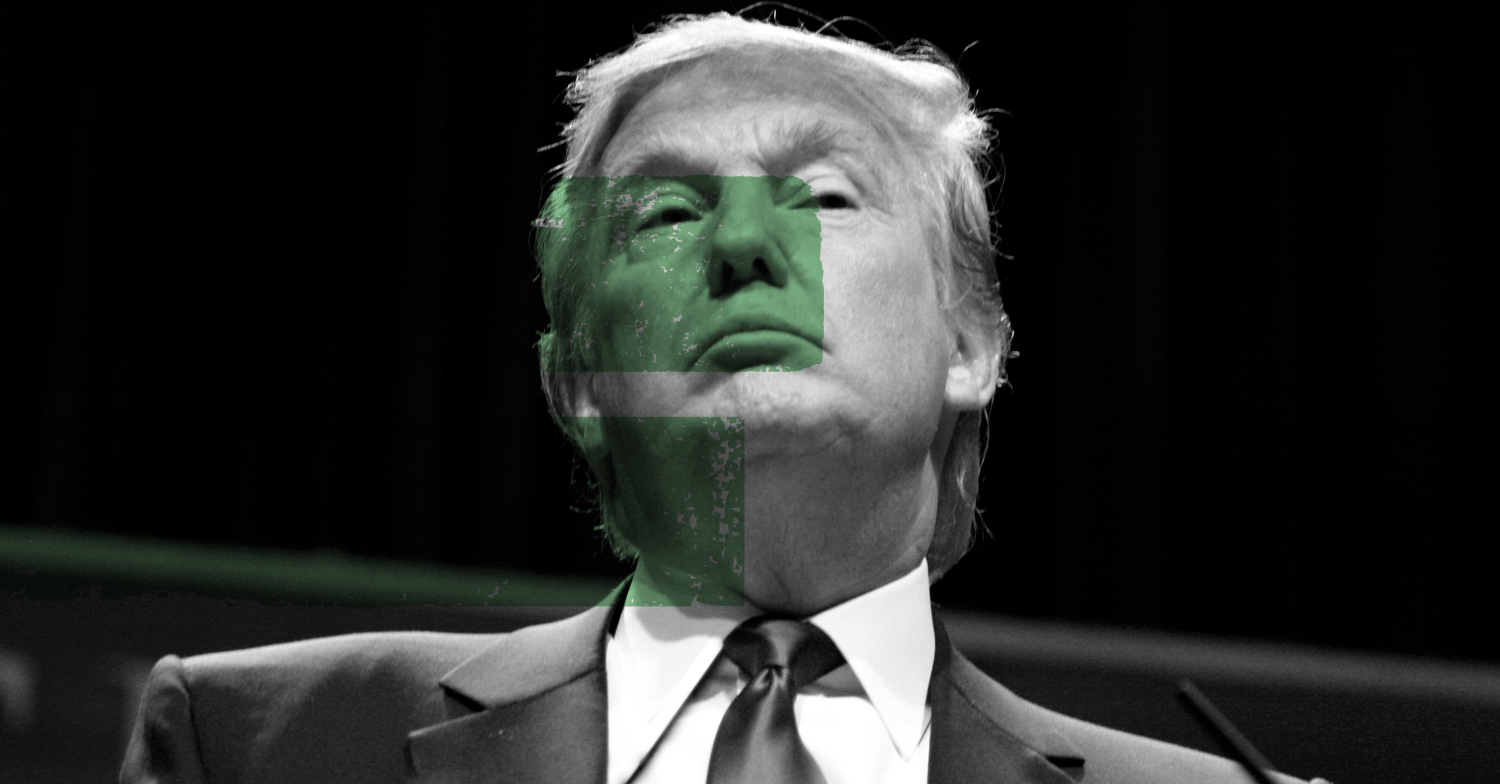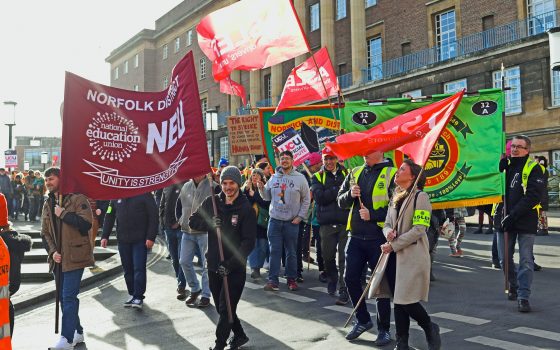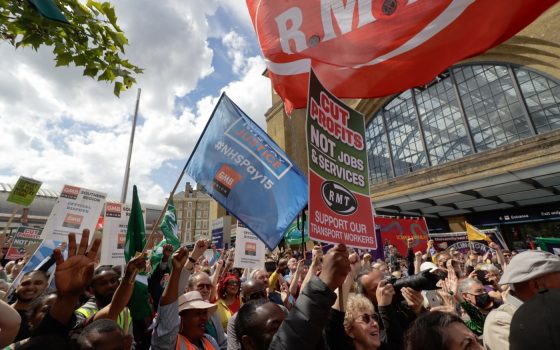Trump just defined the nature of a UK-US trade deal
Trump's order strips back regulations upholding safety standards - in a move which echoes the UK's downwards direction.
01 February 2017
President Trump’s shocking travel ban may have justifiably dominated headlines, but a second executive order was also slipped out this week – and one with major implications for the UK economy.
While many of us were on the streets protesting his offensive ban on refugees, the new president signed an executive order authorising a rule dubbed One In, Two Out.
What sounds like a nursery school game is actually the starting gun to a miserable race to the bottom for the USA and UK. It puts legal protections we all depend on – to be able to eat food safely, or go to work without fear of unfair dismissal – on the line.
One In, Two Out means that if the US government wants to implement new laws it has to get rid of twice as many other laws, based on their cost to business. Economically it’s entirely illogical because it ignores the benefits of laws to society, environment and, yes, even business.
If you think that’s madness you’ll be horrified to learn that Trump copied it from us. In fact, Trump looks positively moderate when compared to our own government: in the UK we have One In, Three Out.
“Nothing will be safe: not our rights at work, not the safeguarding of our environment, not the safety standards of our toys, clothes and food. The consequences will affect us all.”
What this means is that the UK and now the USA have installed an automatic regulation shredder that will gradually tear through the law book until we’re left with the bare minimum. Trump’s order exempted regulations relating to national security, but nothing else will be safe: not our rights at work, not the safeguarding of our environment, not the safety standards of our toys, clothes and food. The consequences will affect us all.
The coalition government began the process of the UK’s assault on our legal protections in 2010 and it’s just one element of much more systemic deregulation. What’s more, it’s being increasingly scaled up: since 2010, the rule in the UK has increased from One In, One Out, to its current standing of One In, Three Out. Each year the civil service publishes a league table of which government departments have done the best based on these deregulatory rules, as a sort of perverse incentive to keep up the good work of scrapping environmental and social protections.

Photo credit: Gage Skidmore
The rhetoric in the UK will have you believe that this is all just a question of getting rid of ‘red tape’ – an abstract concept of frustrating bureaucracy that practically everyone instinctively detests.
But rules that require business to keep rivers clean and protect workers from accidents are not red tape. These individual regulations and protections are highly popular with the public.
Here at the New Economics Foundation we looked into this system of deregulation (which has been given the Orwellian name ‘Better Regulation’) and found that it has led to the delay, weakening or repeal of numerous substantive legal protections.
For instance, the UK government raised the speed limit for lorries because its priority was to cut costs for haulage companies – despite acknowledging that this move could cause additional fatal road accidents. Don’t be fooled: this is not about reducing form-filling. This is about ripping up the laws that protect us.
UK Ministers were quite honest about what this is all supposed to achieve – in the words of then-business minister Michael Fallon: “Whitehall is increasingly putting the needs of businesses centre stage.” Trump’s motivation for adopting the One In, Two Out rule is undoubtedly similar.
But why does Trump’s copycat move spell any further disaster for the UK, given that we already have a worse policy? Because it’s likely that we’re on the verge of signing a hastily negotiated trade deal with the USA when we leave the European Union.
“With the current One In, Two Out rules, the direction of regulatory standards overall can only be downwards.”
Trade deals aim to level out regulatory standards between two countries so as to facilitate the exchange of goods and services with fewer checks. In theory, this could mean that both countries choose to raise their standards to make them equal. But with the current One In, Two Out rules, the direction of regulatory standards overall can only be downwards.
We were promised that Brexit would restore parliamentary sovereignty and allow us to take back control of our laws. A new trade deal with Trump will do precisely the opposite.
Brexit has driven a wedge between the UK and its closest allies, and Theresa May’s current strategy is to seek protection from the playground’s biggest bully. But that unpleasant pact cannot end well.
Trump’s protection comes with a price: locking in a downward spiral of regulatory standards in order to appease the interests of corporate power.
Topics Democracy & participation






